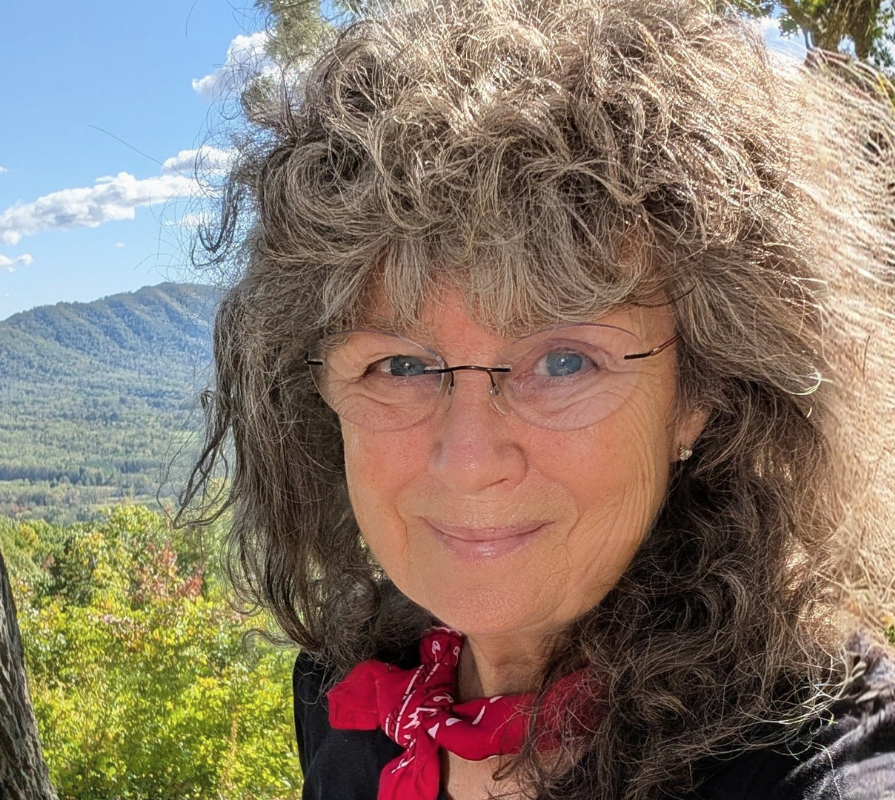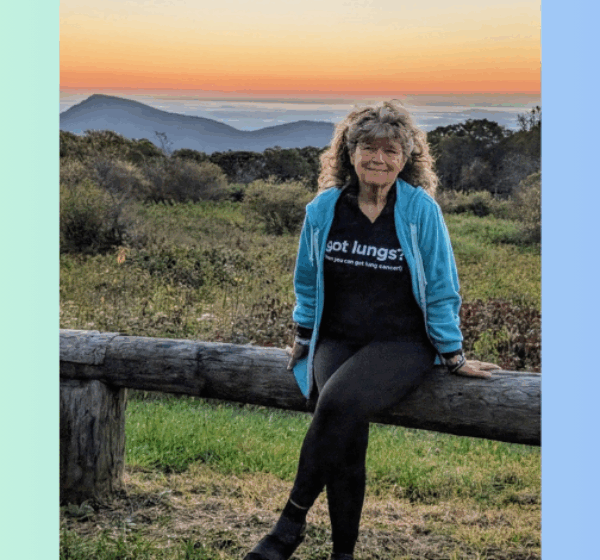Donnita Butler is an Air Force and Navy Veteran with 38 years of combined military and civil service. A survivor of Stage 1A2 non-small cell lung cancer, she now champions early lung cancer screening and biomarker testing for Veterans and others at risk.
Working as a hydraulic mechanic on B-52s and later in IT at the Navy Annex near the Pentagon, Donnita was unknowingly exposed to dangerous levels of asbestos. Combined with growing up in a radon-heavy region of Maine and having a smoking history, she faced what she calls her “triple whammy” of lung cancer risk factors.
When she learned that her health insurance covered lung cancer screening, she advocated for herself even when her first doctor pushed back. Five years later, a routine low-dose CT scan detected a nodule that was later confirmed as Stage 1A2 adenocarcinoma. Her lymph nodes were clear, and early detection saved her life.
Advocacy and Media Work
Donnita fought for biomarker testing when her cancer center initially refused. That persistence led to the discovery that she carries the KRAS G12C biomarker. Through the White Ribbon Project and the lung cancer community, she learned just how critical comprehensive testing and self-advocacy are to quality care.
She later shared her story as a panelist at the American Cancer Society National Lung Cancer Roundtable, helping raise awareness about screening, stigma, and patient empowerment.
Donnita partnered with Dr. Drew Moghanaki of UCLA Health through LCFA’s Breath of Honor program to expand lung cancer screening among Veterans and highlight clinical research opportunities. Their collaboration includes national media appearances and educational initiatives showing how Veterans are powering the next wave of blood-test research.
“It’s not your grandfather’s lung cancer,” Donnita says. “There is so much hope now. I tell every Veteran I meet: if you qualify, get screened. It can save your life too.”
Donnita celebrated her 70th birthday and two-year cancerversary by hiking to McAfee Knob, one of Virginia’s most iconic peaks. She continues to hike, paddle, and adventure with her grandchildren, living proof that early detection and patient advocacy save lives.
Key Messages
- Early detection through low-dose CT screening saves lives
- Veterans face an elevated lung cancer risk due to military exposures
- Biomarker testing provides critical treatment information
- Patient advocacy and self-education are essential to quality care
- Knowledge is power — never stop asking questions



